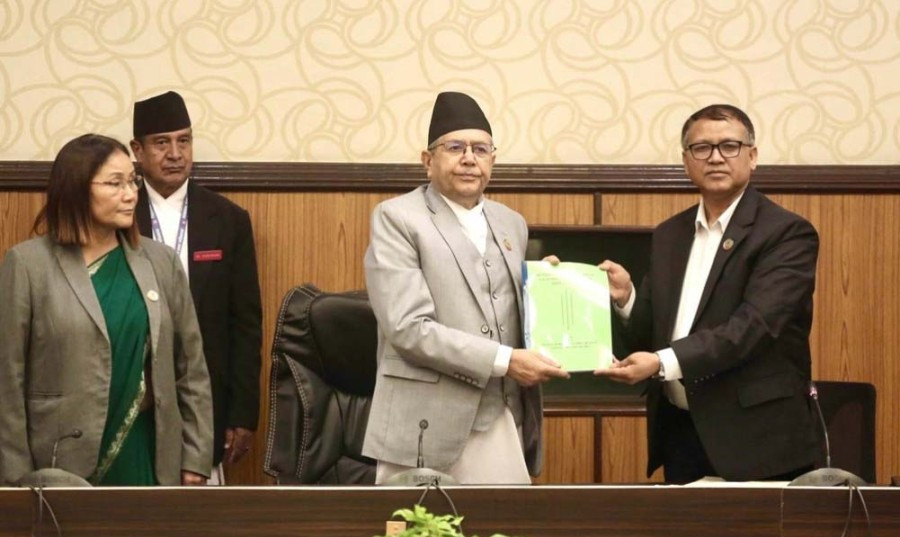Thu, Feb 19, 2026
Editorial
Lawmaking is no joke
Until we punish those who make errors like the one on the cooling-off period, they will keep repeating.
bookmark
Published at : August 6, 2025
Updated at : August 8, 2025 08:06
The parliamentary probe panel formed to investigate the controversial passage of the tampered Federal Civil Service Bill 2024 from the House of Representatives (HoR) submitted its report to Speaker Devraj Ghimire on Tuesday. The report neither identified the culprits behind the watering down of the ‘cooling-off period’ nor recommended a clear course of action to address the issue. Instead, it concluded that the manipulation resulted from systemic negligence, lack of legislative diligence and institutional failure.
The provision of the cooling-off period included in clause 82 (4) of the bill, which barred former civil servants from taking appointments in diplomacy and constitutional bodies for two years after their retirement or resignation, was widely welcomed by ruling as well as opposition lawmakers. However, controversy arose after the erstwhile clause 82 (4), which created a leeway for senior bureaucrats to take such appointments, was reintroduced as clause 82 (5a) in the bill, apparently without the mandate of the State Affairs and Good Governance Committee of the HoR.
The committee had reached a unanimous decision to support the provision. Its members had, through the chair Ramhari Khatiwada, forwarded the bill to bureaucrats for a final drafting, to avoid errors in its legal language. The inattention of the committee members, the secretariat of the committee, the Ministry of Federal Affairs and General Administration and the Ministry of Law, Justice and Parliamentary Affairs must all be considered. All of these parties should have been held to account for their oversight in not tallying the final draft of the bill with the committee’s decision.
The probe committee reportedly took two additional days to finalise the report after members remained divided over the disclosure of roles played by lawmakers and bureaucrats. Procedural oversight and negligence of standard practices in the parliamentary system seem to be the root cause of the lawmaking fumble. In particular, as highlighted in the report, the concept of a ‘keeling schedule’, which tracks the proposed and accepted amendments to a bill, could have been implemented to avoid the procedural lapse.
The process of lawmaking is not a joke. Elected people’s representatives in the parliament cannot afford to derelict their duties, as their actions have legal ramifications for the entire citizenry. By not paying adequate attention to their duties, the lawmakers can jeopardise the entire political system. In this case, chair Khatiwada’s negligence of his role as committee chair appears to be the root cause of the legal inconsistency in the bill. When such blunders in lawmaking are committed, people question the credibility and seriousness of the lawmaking process.
All of the other committees of the parliament must pay close attention to the controversy. Their members must take note of how the absence of a simple process, like the keeling schedule, can hurt the credibility of the entire lawmaking process. Lawmaking is a serious business; there are no shortcuts to it. Unfortunately, the probe committee has failed in its duty of pinpointing blames and punishments. Pressure from top politicians has again prevailed. Until we establish a culture of punishing those who make such egregious errors, they will keep repeating.
Most Read from Editorial
Editor's Picks
Upper house passes tourism bill with tougher Everest rules
What Routine of Nepal Banda gets right, and what it gets wrong
The murky business of room finding in Kathmandu
Nepal’s share market faces unprecedented lockdown as regulators battle industry over trading rules
Ministries differ over extending Indian HICDP aid beyond local governments
E-PAPER | February 19, 2026
×




 18.12°C Kathmandu
18.12°C Kathmandu














